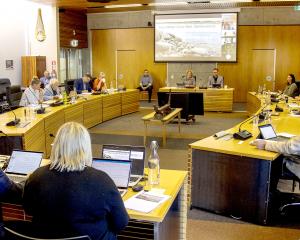
The long-awaited National Policy Statement for Highly Productive Land was released this week and is expected to bring protections for New Zealand’s most fertile soils.
Carter Group has been granted permission by the Selwyn District Council to build a 1710-section housing development in Lincoln, part of it on productive food-growing soils, opponents say.
Residents’ group, Lincoln Voice, is currently fighting the Carter subdivision, known as Lincoln South, in the Environment Court, opposing the district council’s adoption of rezoning application Plan Change 69 from Carter Group.
Lincoln South is planned to cover 190ha of rural land on the southern outskirts of Lincoln, which would see the number of dwellings in the town increase by about 55 per cent.

Group members were still consulting lawyers and experts on whether the NPS-HPL would strengthen their case in the Environment Court.
“At least it stops this happening elsewhere in Selwyn and New Zealand, and is a great step forward to an amazing future for our soils, food provision and our environment,” Carrick said.
Director of Lincoln University-based Bioprotection Aotearoa, Professor Amanda Black, said it would take at least three-and-a-half years to implement the NPS-HPL.
“While it comes into effect on October 17, 2022, any land already marked for subdivision will still go ahead,” Black said.
This included Lincoln South.
“There are also a number of exceptions to protecting highly productive land that begs the questions - will the NPS-HPL be able to adequately protect our future food supply? And is this too little too late?” she said.
Fellow Lincoln academic Dr Trish Fraser, a science team leader at Plant and Food Research, said the new legislation would be a game changer for Selwyn.
The NPS-HPL would mean the district council would have to give more consideration to the type of soil in an area proposed for subdivision.
“So they will have more grounds on which to decline applications than previously where the value of the soil was ignored,” Fraser said.
The district council has faced a wave of rezoning plan change applications in the last two years, as developers take advantage of legislation aimed at solving New Zealand’s housing shortage.
The National Policy Statement for Urban Development was introduced in 2020.













